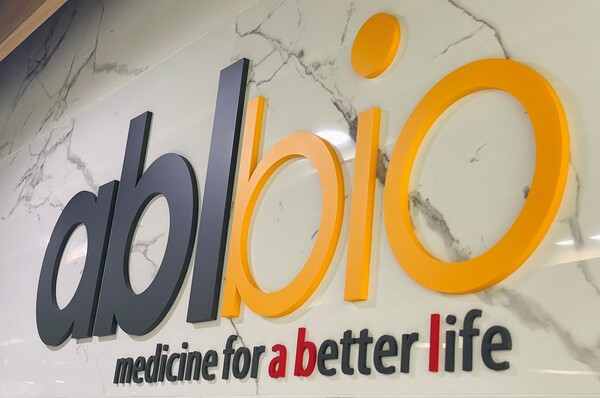ABL Bio has landed a licensing deal worth up to 4.1 trillion won ($2.73 billion) with British pharma giant GSK to develop brain-penetrating therapies for neurodegenerative diseases.
The news sent ABL’s stock soaring 29.96 percent to 44,250 won ($30) on Monday morning, after the Korean biotech disclosed the pact—its second major out-licensing agreement involving its Grabody-B blood-brain barrier (BBB) shuttle platform.
Under the deal, signed Saturday and effective Monday, GSK gets exclusive global rights to develop and commercialize neuro therapies using Grabody-B, a proprietary insulin-like growth factor 1 (IGF1R-based) BBB-crossing technology.
The platform is designed to deliver antibodies, small interfering RNA (siRNA), antisense oligonucleotides (ASOs), and polynucleotides directly into the brain. GSK plans to pursue undisclosed targets in diseases such as Alzheimer’s and Parkinson’s.

The agreement includes a 73.9 billion won upfront payment and up to 148 billion won in near-term milestones. ABL could collect an additional 3.96 trillion won in development, regulatory and commercial milestones, along with tiered royalties on future sales.
For context, that 4.1 trillion won total is equivalent to 12,306 percent of ABL’s 2024 revenue.
GSK is placing a high-stakes bet on solving one of neuroscience’s toughest technical problems: getting drugs past the BBB. While modalities like antibodies and RNA-based therapies hold promise, most struggle to reach the brain in therapeutic amounts. Grabody-B was designed to address that, using IGF1R-mediated transport to shuttle compounds across the barrier.
"Many of the most promising drug candidates are antibody-based, but without a shuttle to cross the BBB, they cannot reach the brain effectively,” said Christopher Austin, GSK’s Senior Vice President of Research Technologies, in a statement. “This is a critical bottleneck we need to solve.”
ABL will transfer the platform technology and related know-how. GSK will take the lead—and foot the bill—for preclinical and clinical development, manufacturing, and commercialization. ABL noted that revenue recognition depends on clinical progress and regulatory approvals, and the contract may be terminated if development fails or stalls.
Related articles
- Compass touts ABL Bio-partnered bispecific after pivotal trial success in biliary tract cancer
- ABL Bio expands ABL103 trial, adding Keytruda and chemo in solid tumors
- ABL Bio nears ₩1 tril. deal with global pharma firm, poised to surpass Sanofi agreement: CEO
- ABL Bio held back its top Alzheimer’s targets. GSK still signed a $2.7 bil. licensing deal.
- ABL Bio’s partner to unveil ABL111 combo therapy’s phase 1 results in Europe
- ABL Bio announces global leap with 'Vision 2.0' in new Gangnam headquarters

